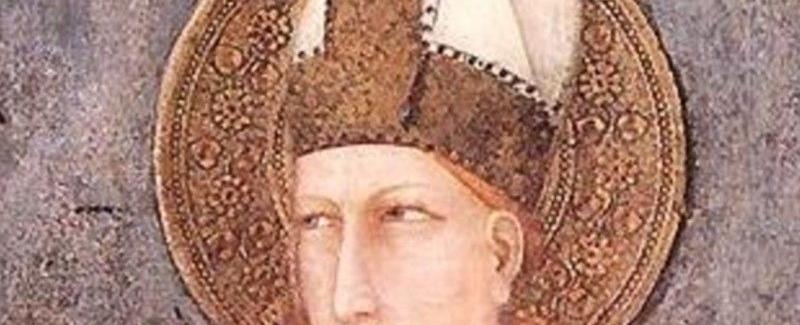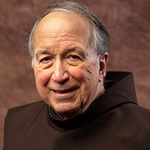Saint Louis of Toulouse: Renouncing Throne to Become a Franciscan

On August 19, the Franciscan family remembers Saint Louis of Toulouse (1274-1297). Although not well known today, Louis was a phenomenon in his own time, a prince who renounced a throne to become a Franciscan.
Great-nephew of two saints
Louis of Anjou was born in 1274 at Brignoles in Provence, the son of Charles II, future King of Naples and count of Provence. He was a great-nephew of both Saint Louis of France and Saint Elizabeth of Hungary.

This summer residence of the Counts of Toulouse at Brignoles was both the birthplace and deathplace of Saint Louis.
Educated by Friars Minor
In 1284, Louis's father, Charles, was captured in a struggle with the king of Aragon over the control of Sicily; Charles obtained his release in 1288 only by agreeing to send Louis and two other sons to Catalonia as hostages instead. And so, the youths spent seven years under house arrest in a fortress near Barcelona (1288-95), where their education was entrusted to several Friars Minor.
Wide-ranging intellectual interests
Louis proved an assiduous student who developed wide-ranging intellectual interests. During these years, he also corresponded with the noted Franciscan theologian, Peter of John Olivi. Louis was inspired by the Franciscans’ ideals and so determined to become a Franciscan himself.
Renouncing rights of succession
Upon Louis's release in 1295, he dramatically renounced his rights of succession: "Jesus Christ is my kingdom. If he is all I have, I shall have everything." Louis's dynastic connections, however, meant that he would never be allowed to be a simple friar; Pope Boniface VIII insisted on appointing the young prince as bishop of Toulouse in 1296 before permitting him to make his profession as a Franciscan.

An altarpiece by Simone Martini, commissioned by King Robert after Louis's canonization in 1317, depicts Saint Louis renouncing his right to the throne and placing the crown on his brother Robert's head.
Living simply and caring for the poor
Still, Louis was determined to live as a poor friar as much as possible: "Jesus Christ is all my riches; he alone is sufficient for me." He lived very simply and committed half the revenues of his diocese to care for the poor, daily feeding 25 poor people at his own table.

The cathedral of Toulouse underwent construction when Louis was bishop.
Third Friar Minor to be canonized
This idealistic young man, however, died suddenly of fever at Brignoles in 1297, after only a year in the Order. Louis was canonized in 1317, the third Friar Minor to be declared a saint (after Francis and Anthony of Padua). He was venerated in the Middle Ages among the Franciscans, in Valencia, Spain (where his remains were taken), and Hungary (his mother's homeland). Mission San Luis Obispo in California is named after him.

Mission San Luis Obispo in California, founded by Saint Junipero Serra in 1772, was named after Saint Louis of Toulouse.
Brother proved to be great benefactor of Franciscans
Interestingly enough, Louis' brother, Robert, who inherited the throne of Naples instead of Louis, proved to be a devout ruler and great benefactor of the Franciscans. It was Robert who concluded a treaty with the Sultan of Egypt in 1333, that allowed the Franciscans to minister in Jerusalem, laying the foundations for the Custody of the Holy Land.
Dominic Monti, OFM
Professor of Franciscan Research in the Franciscan Institute of St. Bonaventure University
Dominic V. Monti, OFM, is a Franciscan Friar of Holy Name Province (USA) and currently professor of Franciscan Research in the Franciscan Institute of St. Bonaventure University. He devoted the greater part of his ministry to teaching the History of Christianity, in particular the history of the Franciscan movement. He has contributed two volumes to the Works of St. Bonaventure series and is author of Francis & His Brothers, a popular history of the Friars Minor.

